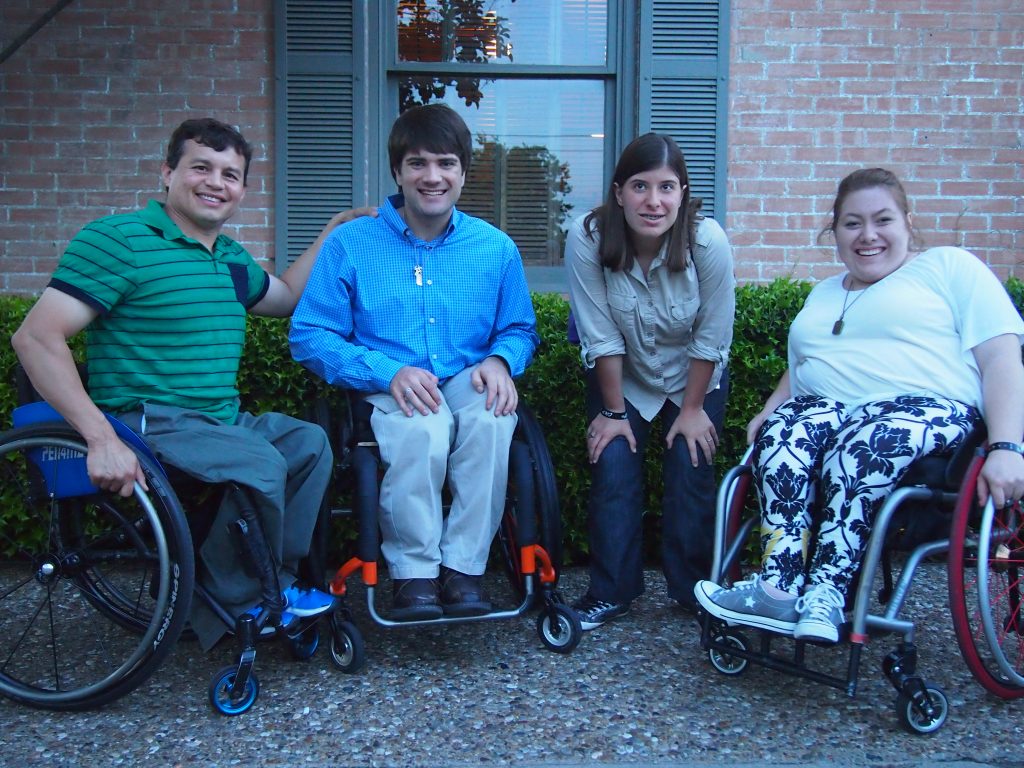Frequently Asked Questions
Q: Do Children With Spina Bifida Have Learning Problems Or Have Difficulty Attaining Independence?
A: Some children with Spina Bifida do experience learning problems. They may have difficulty paying attention, expressing or understanding language, organizing, sequencing, reading, or solving abstract math problems. Persons with the most severe form of Spina Bifida need to learn mobility skills and can achieve independence with the use of crutches, braces, or wheelchairs. Also, with new techniques, children can become independent in managing their bowel and bladder problems.
Q: What Are Some Secondary Conditions Associated With Spina Bifida?
A: Due to a wide range of neurological damage and mobility impairment, it can be difficult to identify all secondary conditions. Examples of secondary conditions associated with Spina Bifida are latex allergy, tendonitis, obesity, skin breakdown, gastrointestinal disorders, learning disabilities, attaining and retaining mobility, depression, and social and sexual issues. However it is not known why individuals with Spina Bifida may have a heightened sensitivity to latex (rubber) products, ranging from toys to medical supplies. Symptoms include watery eyes, wheezing, hives, rash, swelling, and in severe cases a life threatening allergic reaction. These responses can occur when items containing latex touch the skin, the mucous membranes (like the mouth, genitals, bladder or rectum), open areas or enter the bloodstream (especially during surgery). Click here to see the latest Latex product list.
Q: Are All People With Spina Bifida Allergic To Latex?
A: No, not all people with Spina Bifida have a latex allergy. It is thought that the more surgical and medical procedures a person is subjected to, the more likely they are to develop the allergy.
Q: Can Anything Be Done To Prevent Spina Bifida?
A: We do not know all of the causes of spina bifida. The role that genetics and the environment play in causing spina bifida needs to be studied further. However, we do know that there are ways for women to reduce the risk of having a baby with spina bifida both before and during her pregnancy. If you are pregnant or could get pregnant, use the following tips to help prevent your baby from having spina bifida:
Remember! Spina bifida happens in the first few weeks of pregnancy, often before a woman knows she’s pregnant. Although folic acid is not a guarantee that a woman will have a healthy pregnancy, taking folic acid can help reduce a woman’s risk of having a pregnancy affected by spina bifida. Because half of all pregnancies in the United States are unplanned, it is important that all women who can become pregnant take 400 mcg of folic acid daily.
Q: What Is Folic Acid?
A: Folic acid, a common water-soluble B vitamin, is essential for the functioning of the human body. During periods of rapid growth, such as pregnancy and fetal development, the body’s requirement for this vitamin increases. There are three ways for women to receive sufficient amounts of folic acid in their diet. Folic acid can be found in multivitamins, fortified breakfast cereals, and foods rich in folic acid (folate) such as broccoli, spinach, egg yolks, some fruit and fruit juices. However, the average American diet does not supply the recommended level of folic acid. Caution: Megadoses of general multivitamins can cause other birth defects.
Q: How Do Genetics Play A Role In Spina Bifida?
A: There is no way to prevent a baby from having a birth defect, it is only possible to reduce the risk. Understanding how genetics plays a role in pregnancy may help you with family planning. If you have a family history of Spina Bifida and are planning a family, you should consult a genetic counselor about pregnancy, risks, and tests. CLICK HERE to view a document on genetics.
Q: What Is The Longterm Outlook For A Child Born With Spina Bifida?
A: Thanks to medical advances, nearly all newborns with Spina Bifida survive and, with aggressive medical care and therapy, most of them will have normal intelligence, normal life spans, and have occupations and careers of their choosing.

